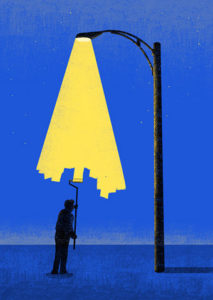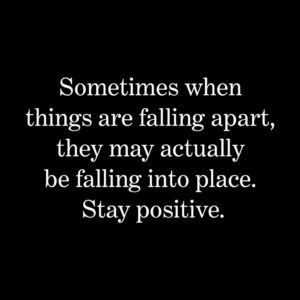 Here’s some highlights on the importance of sleep from an article in The Guardian.
Here’s some highlights on the importance of sleep from an article in The Guardian.
- After being awake for 19 hours, you’re as cognitively impaired as someone who is drunk.
- Two-thirds of adults in developed nations fail to obtain eight hours of sleep.
- If you drive having had only four hours of sleep, you’re 11.5 times more likely to be involved in an accident.
- To successfully initiate sleep, your core temperature needs to drop about 1C.
- A hot bath aids sleep because your dilated blood vessels radiate inner heat, and your core body temperature drops.
- The time taken to reach physical exhaustion by athletes who obtain less than eight hours of sleep, and especially less than six hours, drops by 10-30%.
- It’s a myth that older adults need less sleep.
- Morning types, who prefer to awake around dawn, make up about 40% of the population. Evening types, who prefer to go to bed late and wake up late, account for about 30%. The remaining 30% lie somewhere in between.
Matthew Walker is the director of the Center for Human Sleep Science at UC, Berkeley and was formerly a professor of psychiatry at Harvard Medical School.
Walker has written “Why We Sleep,” examining the powerful links between sleep loss and Alzheimer’s disease, cancer, diabetes, obesity and poor mental health. “No aspect of our biology is left unscathed by sleep deprivation,” he says.
“First, we electrified the night,” Walker says. “Second, our work: not only the porous borders between start and finish, but longer commuter times, too. No one wants to give up time with their family or entertainment, so they give up sleep instead. And anxiety plays a part. We’re a lonelier, more depressed society.”
But Walker also says that in the developed world, sleep is strongly associated with weakness, even shame, “We have stigmatised sleep with the label of laziness.”
More than 20 large scale epidemiological studies all report the clear relationship: the shorter your sleep, the shorter your life. To take just one example, adults aged 45 years or older who sleep less than six hours a night are 200% more likely to have a heart attack or stroke in their lifetime.
By looking at the brainwave patterns of people with different forms of dementia, sleep could be a new early diagnostic litmus test for different subtypes of dementia.
A lack of sleep also appears to hijack the body’s effective control of blood sugar, the cells become less responsive to insulin causing a prediabetic state of hyperglycaemia. When your sleep becomes short you’re susceptible to weight gain. Among the reasons for this are the fact that inadequate sleep decreases levels of the satiety-signalling hormone, leptin, and increases levels of the hunger-signalling hormone, ghrelin. “I’m not going to say that the obesity crisis is caused by the sleep-loss epidemic alone. It’s not. However, processed food and sedentary lifestyles don’t adequately explain its rise. Something’s missing. It’s now clear that sleep is that third ingredient.”
Getting too little sleep across the adult lifespan will significantly raise your risk of developing Alzheimer’s disease. In essence it has to do with amyloid deposits (a toxin protein) accumulating in the brains of those suffering from the disease, killing the surrounding cells. During deep sleep, such deposits are effectively cleaned from the brain. Without sufficient sleep, these plaques build up, especially in the brain’s deep-sleep-generating regions, attacking and degrading them. The loss of deep sleep caused by this assault therefore lessens our ability to remove them from the brain at night. More amyloid, less deep sleep; less deep sleep, more amyloid, and so on.
Sleep aids our ability to make new memories, and restores our capacity for learning.
A lack of sleep also affects our mood more generally. Brain scans carried out by Walker revealed a 60% amplification in the reactivity of the amygdala – a key spot for triggering anger and rage – in those who were sleep-deprived.
We sleep in 90-minute cycles, and it’s only towards the end of each one of these that we go into deep sleep. Each cycle comprises two kinds of sleep. First, there is NREM sleep (non-rapid eye movement sleep); this is then followed by REM (rapid eye movement) sleep.
“During NREM sleep, your brain goes into this incredible synchronised pattern of rhythmic chanting,” he says. “There’s a remarkable unity across the surface of the brain, like a deep, slow mantra. Vast amounts of memory processing is going on. To produce these brainwaves, hundreds of thousands of cells all sing together, and then go silent, and on and on. Meanwhile, your body settles into this lovely low state of energy, the best blood-pressure medicine you could ever hope for. REM sleep, on the other hand, is sometimes known as paradoxical sleep, because the brain patterns are identical to when you’re awake. It’s an incredibly active brain state. Your heart and nervous system go through spurts of activity: we’re still not exactly sure why.”
Does the 90-minute cycle mean that so-called power naps are worthless? “They can take the edge off basic sleepiness. But you need 90 minutes to get to deep sleep, and one cycle isn’t enough to do all the work. You need four or five cycles to get all the benefit.”
Walker says, “I give myself a non-negotiable eight-hour sleep opportunity every night, and I keep very regular hours. Go to bed and wake up at the same time every day. I take my sleep incredibly seriously because I have seen the evidence.”
How is it possible to tell if a person is sleep-deprived? Walker thinks we should trust our instincts. Those who would sleep on if their alarm clock was turned off are simply not getting enough. Ditto those who need caffeine in the afternoon to stay awake. “I see it all the time,” he says. “I get on a flight at 10am when people should be at peak alert, and I look around, and half of the plane has immediately fallen asleep.”
![]()
 If you figure out money, life is incredibly easy. If you don’t, life is insanely hard. You don’t need lots of money. But you do need enough, and be able to deal with it.
If you figure out money, life is incredibly easy. If you don’t, life is insanely hard. You don’t need lots of money. But you do need enough, and be able to deal with it.







